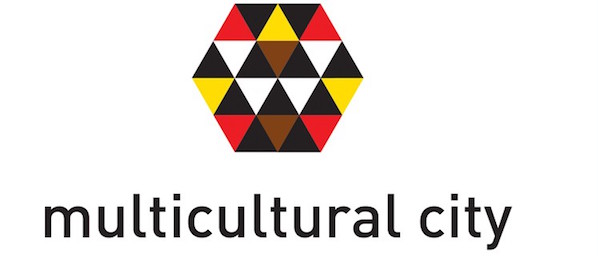Märkische Oderzeitung
Ines Weber-Rath
14.09.2017
Theatre play for school children premiers at Kreiskulturhaus/ It tells stories of refugees from past and present
Flight experiences of war children
Seelow (MOZ) The experiences of refugees during and after the World War II are similar to the experiences of those who flee from today’s wars. First of all, they are traumatic, as the theatre play “Puzzle – War Children’s Stories: Escape and Expulsion Yesterday and Today” shows. It premiered on Wednesday at Kreiskulturhaus.
The actors were playing not on the stage, but in the middle of the Great Hall. The audience, including ninth-graders from Seelow secondary school and people from Neuhardenberg refugee camp, were sitting around them, being actually part of the action.
This was exactly what the theatre director Monika Dobrowlanska wanted, because the topic of the play concerned everyone in the room and in the country in general.
She invited both professional actors and laymen to perform in the play – among them several refugees. Two of them, Yakob Mogos (18) and Wizz Koosaar Yare (17) from Ethiopia, met the director in the camp for unaccompanied minor refugees in Seelow. At the end of last year, Monika Dobrowlanska had started to interview the young people. Another role, of a young Pakistani, was taken over by the actor Julian Ricker shortly before the premiere. “He has been deported,” explained Dobrowlanska. So, in the end the escape story of the Pakistani boy was told by a German.
What made the performance so special, was a constant, partly confusing change between times and nationalities. It started with the memories of a 10 year old girl, who by the end of the war had to leave her home, which was situated on the territory of today’s Poland, and who ended up in Lietzen, where she was being humiliated and exploited by her own countrymen. Her memories were written down by the German-Polish Organization “My Life – Erzählte Zeitgeschichte” and wonderfully performed by the actress Mirja Henking.
She was sitting back-to-back with Faryal Wali. The 20-year-old Afghan girl from Kabul, already good in German language, added many pieces to the big refugee puzzle in the play. For example, she expressed the following thought: “People who hate us are themselves bad. There are good and bad ones among all the people”.
Overwhelming was the story of Mark Perlemann, Jewish boy from Belarus, played by Vadim Grakowski. Trying to escape from Nazis, he had moved to Russia, where he found nothing but anti-Semitic sentiments.
Dorothea Wettengel from Letschin, another witness of those times, recounted some of her experiences of flight and expulsion after the World War II by herself. Now aged 84, she had escaped as a 12 year-old girl from Lower Silesia with her little brother. They play also included memories of Brunhilde Fischer (82) from Letschin, who however missed the premiere because of sickness.
Besides, there was a story of a boy from Hitler Youth, played by Volkmar Leif Gilbert. After turning 17 years old, the protagonist was supposed to join The Volkssturm, but he had luck: his records burned in an air attack.
Many of today’s war children are less fortunate, as the story of the young Pakistani showed. After his father, a Taliban opponent, had been murdered, he fled from his home to escape the same fate.
In many scenes, the actors were dealing with the fears of a great number of Germans, but also of the people from Eastern Europe – fears of being flooded with foreigners. They reflected on such questions like “What does ‘German’ mean?” and “Whom you consider to be a refugee?”. One of the answers was given by Fargal: she distinguishes between those who survive and those who only want to live better.
The 80 minute long play also criticized mass media, telling that journalists often fuelled those fears, for example of bearded men. After this idea was expressed, a talkshow took place.
At the end of the play, Kerstin Dickhoff from the organisation Kreis-Kinder- und Jugendring (KKJR) was moved to tears. KKJR was the bearer of the documentary theatre project, which was funded by the Brandenburg Regional Center for Political Education and by local authorities.
The SPD parliamentary deputy Simona Koß thanked all the participants for their extraordinary commitment and gave them presents in form of marmalade made by herself. Being the spokesperson for education policies of the SPD state parliament fraction, she patronized the project.
Now the theatre play will go on tour – at first Berlin, after that several places in Märkisch-Oderland.
